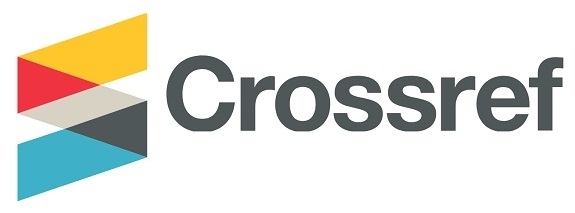EKSTERNALITAS PENETAPAN KEBIJAKAN PAJAK KARBON DI INDONESIA
DOI:
https://doi.org/10.36277/mreko.v2i3.287Keywords:
Externalities, , Carbon Tax, ChallengesAbstract
The purpose of this study is to determine the impact of the Carbon Tax policy in reducing negative externalities in Indonesia, and to find out the comparison between the planned Carbon Tax policy in Indonesia and other countries in the world. The type of research used is qualitative research. The research method used is a literature study with data sources in the form of secondary data. The secondary data used is sourced from books, journals, government regulations, and internet sites. The results showed that the establishment of a Carbon Tax policy can reduce negative externalities due to carbon emissions. In addition, with this policy, state revenue from taxes can increase. In Indonesia, the establishment of the Carbon Tax policy is planned to be implemented in 2025 with a lower tax rate compared to other European countries that have implemented Carbon Tax policies. In these European countries, the establishment of Carbon Tax policies has been proven to reduce negative externalities in the environment due to carbon emissions.
References
Ahdiat, A. (2022, November 7). 10 Negara dengan Tarif Pajak Karbon Tertinggi di Skala Global. databoks.katadata.co.id. https://databoks.katadata.co.id/index.php/datapublish/2022/11/07/bukan-eropa-ini-negara-dengan-tarif-pajak-karbon-tertinggi-pada-2022
Alamsyah, S. A. L. (2023, Mei 8). Pajak Karbon Ditunda Hingga 2025, Mengapa? Binus. https://accounting.binus.ac.id/2023/05/08/pajak-karbon-ditunda-hingga-2025-mengapa/#:~:text=Pelaksanaannya%20diundur%20karena%20mempertimbangkan%20situasi,akan%20mulai%20berlaku%20pada%202025.
Darmalaksana, W. (2020). Metode Penelitian Kualitatif Studi Pustaka dan Studi Lapangan. https://digilib.uinsgd.ac.id/32855/1/Metode%20Penelitian%20Kualitatif.pdf
Dilasari, A. P., Ani, H. N., & Rizka, R. J. H. (2022). Analisis Best Practice Kebijakan Carbon Tax Dalam Mengatasi Eksternalitas Negatif Emisi Karbon Di Indonesia. Owner, 7(1), 184–194. https://doi.org/10.33395/owner.v7i1.1182
Gruber, J. (2016). Public Finance and Public Policy (5 ed.).
Hanifiyah, M., & Subari, S. (2020). Eksternalitas Pabrik Gula PT. Kebun Tebu Mas Desa Lamongrejo Kecamatan Ngimbang Kabupaten Lamongan. AGRISCIENCE, 1. http://journal.trunojoyo.ac.id/agriscience
Irama, A. B. (2019). Potensi Penerimaan Negara Dari Emisi Karbon: Langkah Optimis Mewujudkan Pembangunan Berkelanjutan Di Indonesia. Info Artha, 3(2), 133–142. https://www.kemenkeu.
Irmayani, & Syahril. (2020). Kebijakan Cukai Kantong Plastik Sebagai Dampak Eksternalitas Lingkungan. EKOMBIS: Jurnal Fakultas Ekonomi, 6(1), 48–56. http://jurnal.utu.ac.id/ekombis/article/view/2007
Kementerian Keuangan. (2021). Pajak Karbon di Indonesia. https://gatrik.esdm.go.id/assets/uploads/download_index/files/2bb41-bahan-bkf-kemenkeu.pdf
Kementerian Keuangan. (2022). Pajak Karbon, Wujud Komitmen Indonesia Menuju Green Economy. opini.kemenkeu.go.id. https://opini.kemenkeu.go.id/article/read/pajak-karbon-wujud-komitmen-indonesia-menuju-green-economy
Kumala, R., Ulpa, R., Rahayu, A., & Martinah. (2021). Pajak Karbon: Perbaiki Ekonomi dan Solusi Lindungi Bumi. Prosiding Seminar Stiami, 8(1), 66–73. https://ojs.stiami.ac.id/index.php/PS/article/view/1370
Maghfirani, H. N., Hanum, N., & Amani, R. D. (2022). Analisis Tantangan Penerapan Pajak Karbon di Indonesia. Jurnal Riset Ekonomi, 1(4), 314–321. https://www.bajangjournal.com/index.php/Juremi/article/view/746/539
Mufti, M. S. T. (2023). Analisis Akuntansi Piutang Terhadap Pemberian Pembiayaan Anggota Pada BMT Khairul Amin Kabupaten Banjar. Jurnal Ilmiah Ekonomi Bisnis, 9(1), 1–14. http://ejournal.stiepancasetia.ac.id/index.php/jieb
Pandey, F., Kuntjoro, Y. D., Uksan, A., & Sundari, S. (2022). Rencana Penerapan Pajak Karbon di Indonesia. Jurnal Kewarganegaraan, 6(2), 2899–2905. https://journal.upy.ac.id/index.php/pkn/article/view/3175
Ratnawati, D. (2016). Carbon Tax Sebagai Alternatif Kebijakan Untuk Mengatasi Eksternalitas Negatif Emisi Karbon di Indonesia. Jurnal Perbendaharaan, Keuangan Negara, dan Kebijakan Publik, 1(2), 53–67. https://itrev.kemenkeu.go.id/index.php/ITRev/article/view/51
Sandi, I., & Dawood, T. C. (2019). Eksternalitas Pabrik Kelapa Sawit di Aceh Tamiang. Jurnal Ilmiah Mahasiswa (JIM), 4(4), 375–382. https://jim.usk.ac.id/EKP/article/view/14952/0
Saputra, A. I. (2021). Pajak Karbon Sebagai Sumber Penerimaan Negara dan Sistem Pemungutannya. Jurnal Anggaran dan Keuangan Negara Indonesia, 3(1), 56–71. https://anggaran.e-journal.id/akurasi
Selvi, Rahmi, N., & Rachmatulloh, I. (2020). Urgensi Penerapan Pajak Karbon Di Indonesia. Jurnal Reformasi Administrasi, 7(1), 29–34. https://ojs.stiami.ac.id/index.php/reformasi/article/view/845
Suciadi, M., Priyo Purnomo, E., & Nur Kasiwi, A. (2020). Eksternalitas Positif Tambang Batu Bara Terhadap Kesejahteraan Sosial Ekonomi Masyarakat di Kabupaten Kutai Kartanegara. Jurnal Ilmiah Dinamika Sosial, 4(2), 267–285. https://journal.undiknas.ac.id/index.php/fisip/article/view/2458
Sudjono, A. C., & Setiawan, A. (2022). Peran Regulasi Keuangan Berkelanjutan Terhadap Tingkat Kesiapan Wajib Pajak dalam Penerapan Pajak Kerbon di Indonesia. Jurnal Bisnis dan Akuntansi, 24(2), 365–380. http://jurnaltsm.id/index.php/JBA
Undang-Undang Nomor 7 Tahun 2021 tentang Harmonisasi Peraturan Perpajakan.
Wiratno, A., & Muaziz, F. (2020). Profitabilitas, ukuran perusahaan, dan leverage mempengaruhi pengungkapan emisi karbon di Indonesia. Jurnal Ekonomi, Bisnis dan Akuntansi (JEBA), 22(1), 28–41. http://www.jp.feb.unsoed.ac.id/index.php/jeba/article/view/1562
Yuniarti, D. (2019). Eksternalitas Lingkungan. https://www.researchgate.net/publication/332494798
Downloads
Published
How to Cite
Issue
Section
License
Copyright (c) 2023 MEDIA RISET EKONOMI [MR.EKO]

This work is licensed under a Creative Commons Attribution 4.0 International License.
You are free to:
Share - copy and redistribute the materials in any medium or format for any purpose, even for commercial purposes.
Adapt - compose, change and develop the material for any purpose, even for commercial purposes.
The licensor cannot revoke these freedoms as long as you follow the license terms.
With the following conditions:
Attribution - you must give appropriate credit, provide a link to the license, and indicate if changes have been made. You may do so in a reasonable manner, but not in any way that suggests that the licensor endorses you or your use.
No additional restrictions - You may not implement legal provisions or technological measures that legally restrict others from doing anything permitted by the license.
Notice:
You do not have to comply with the license for elements of the material that are in the public domain or where your use is permitted by an applicable exclusion or restriction.
No warranties are given. This license may not grant all the permissions necessary for your intended use. For example, other rights such as publicity, privacy, or moral rights may limit how you use the material.














